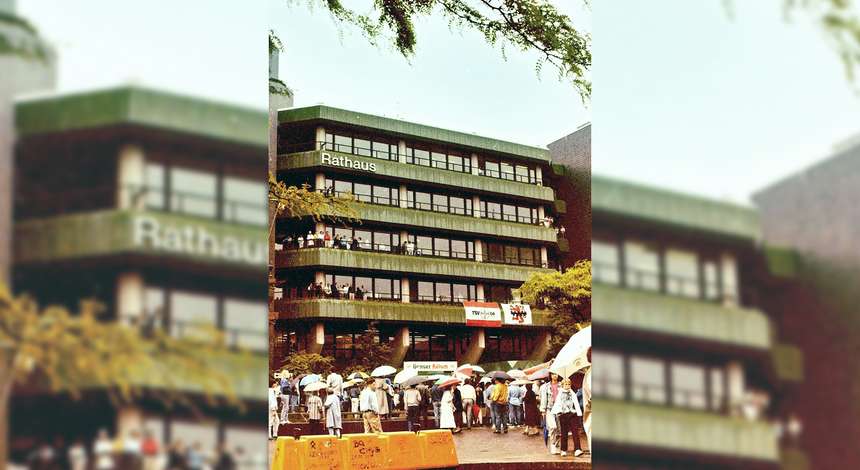
Up until it was demolished in 2007 it was not the favourite building of Leverkusen residents but it had been used three times for Bayer 04 celebrations. Three times? Yes, three times: 1988, 1993 and 1997. There was a motorcade through the city centre both to celebrate the UEFA Cup win and the DFB Cup win. In 1988, in rain and with protesting pedestrians ("Why are cars driving through the centre of the city?!" "They won the UEFA Cup yesterday." I don't care two hoots, this is a pedestrian zone and cars aren't allowed here!"). And another time in brilliant sunshine in 1993. On both occasions, a stand was built up in front of the town hall and the fans were able to celebrate.
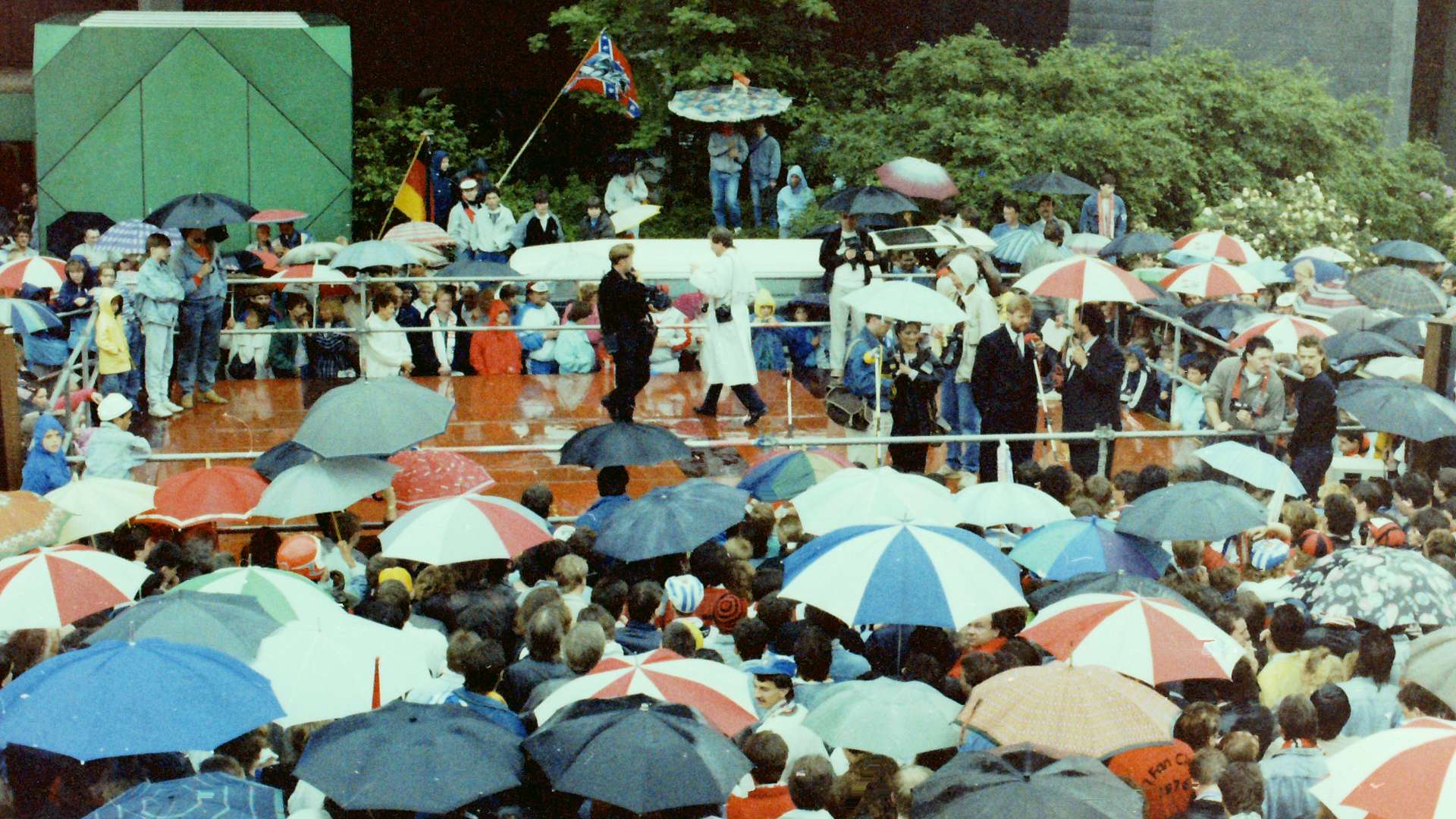

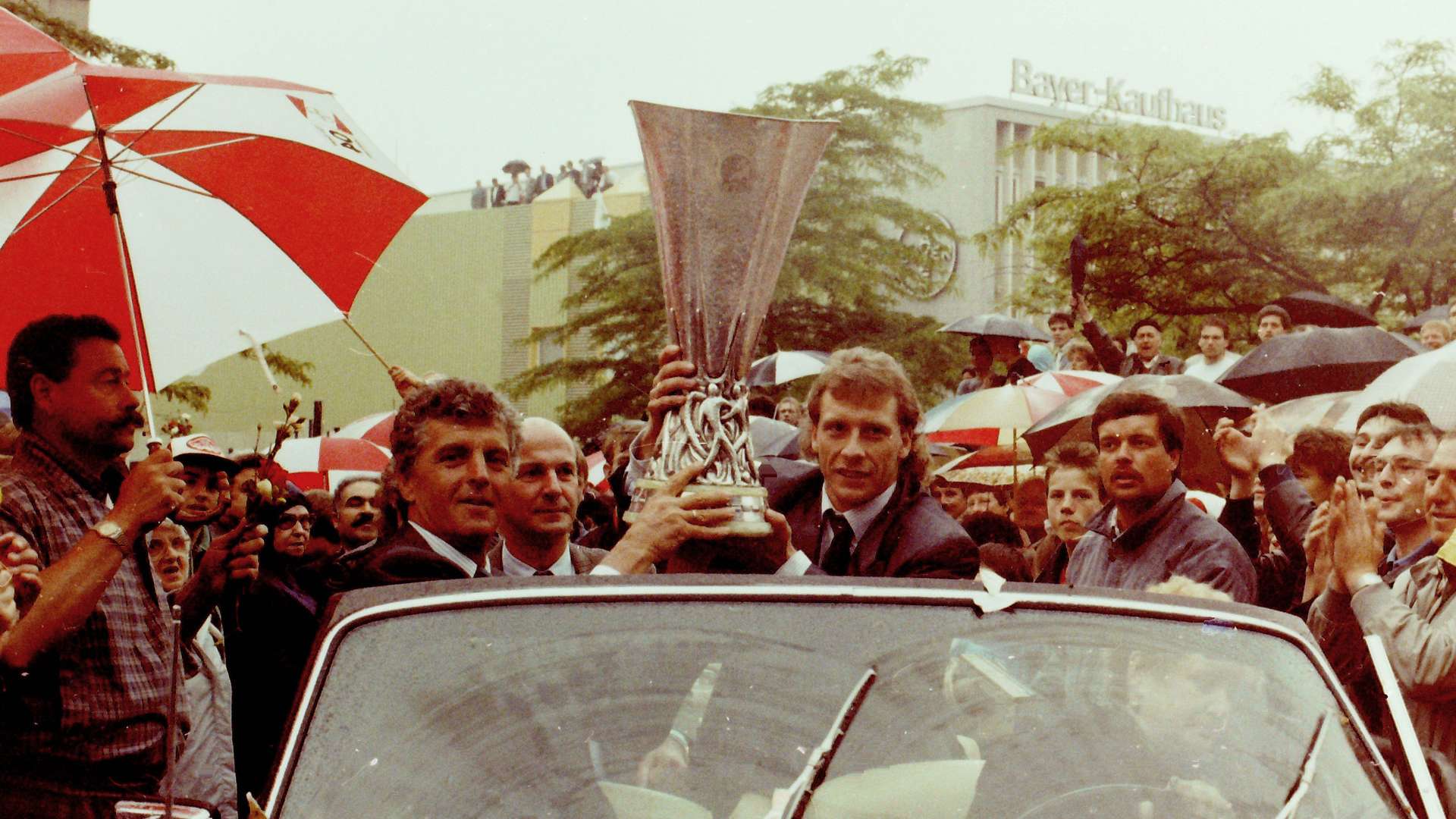
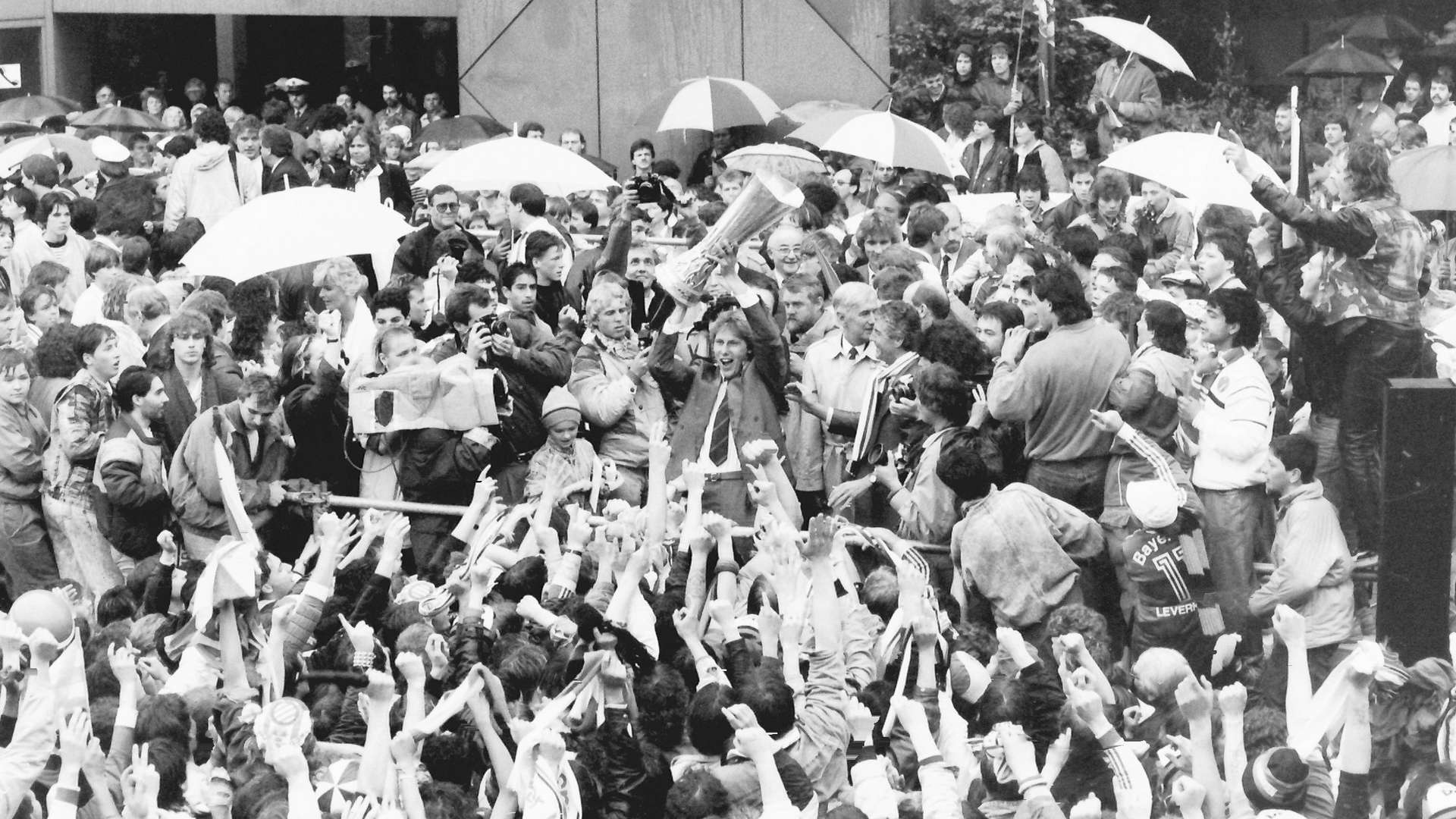
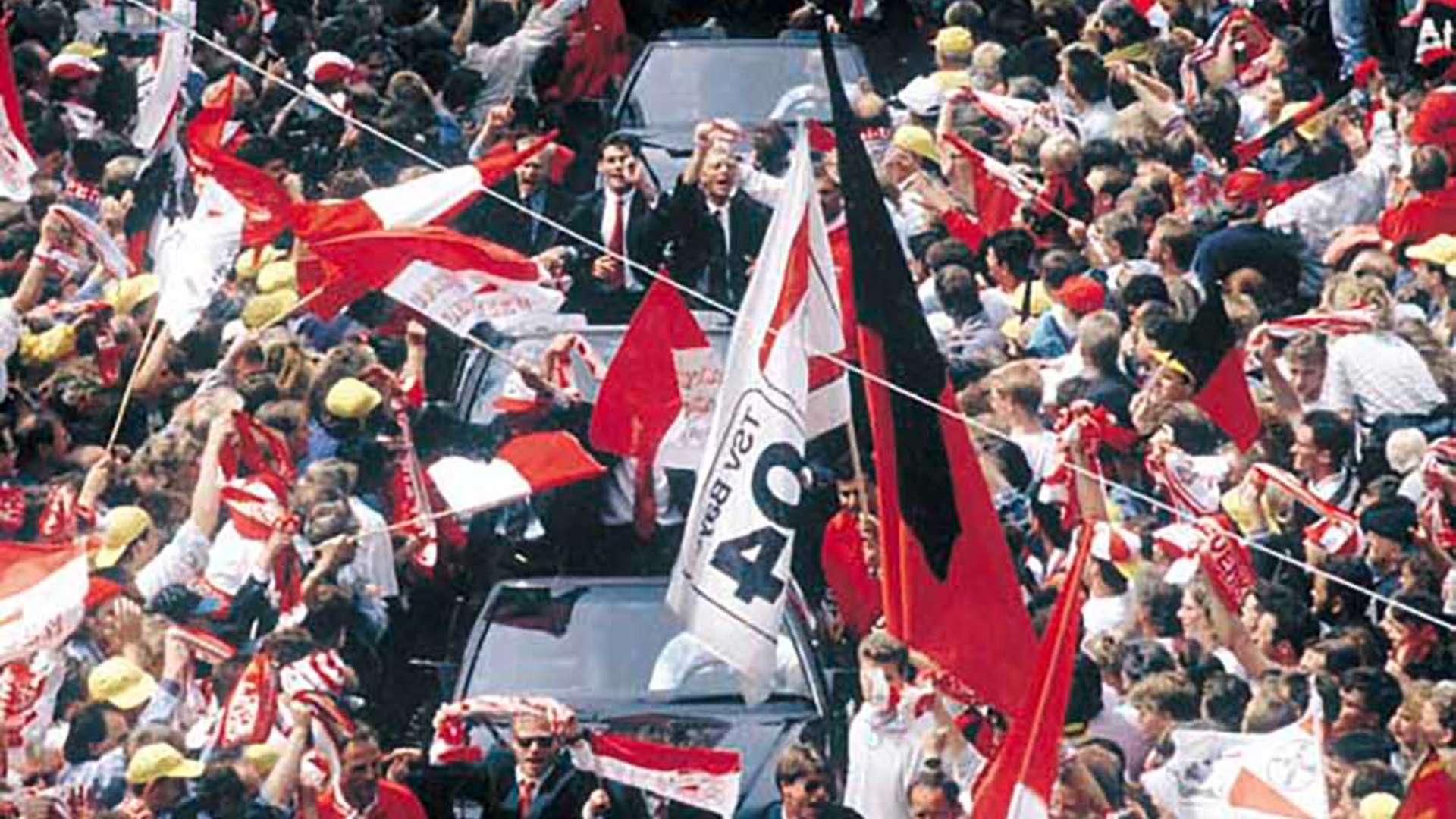
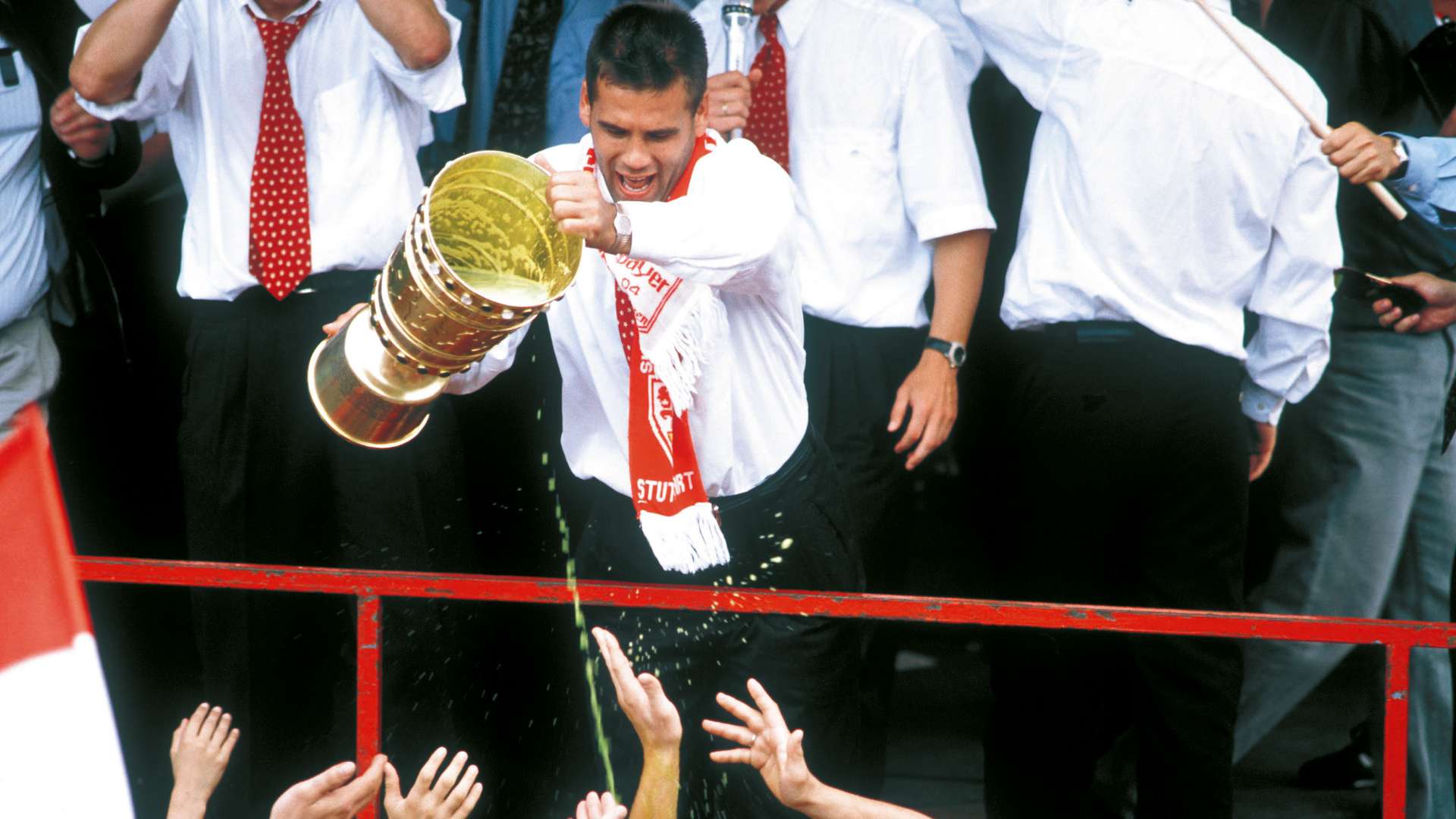
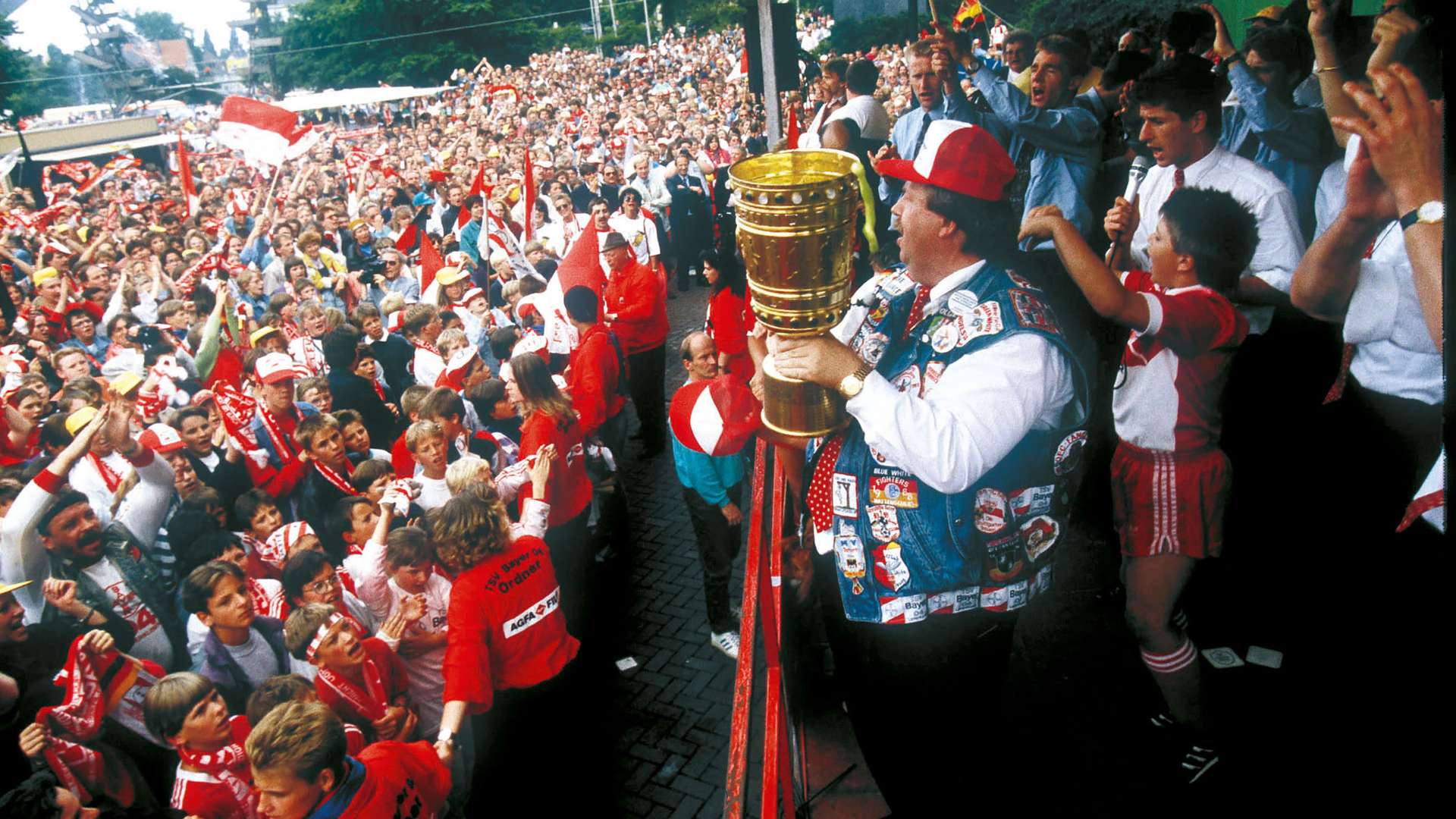
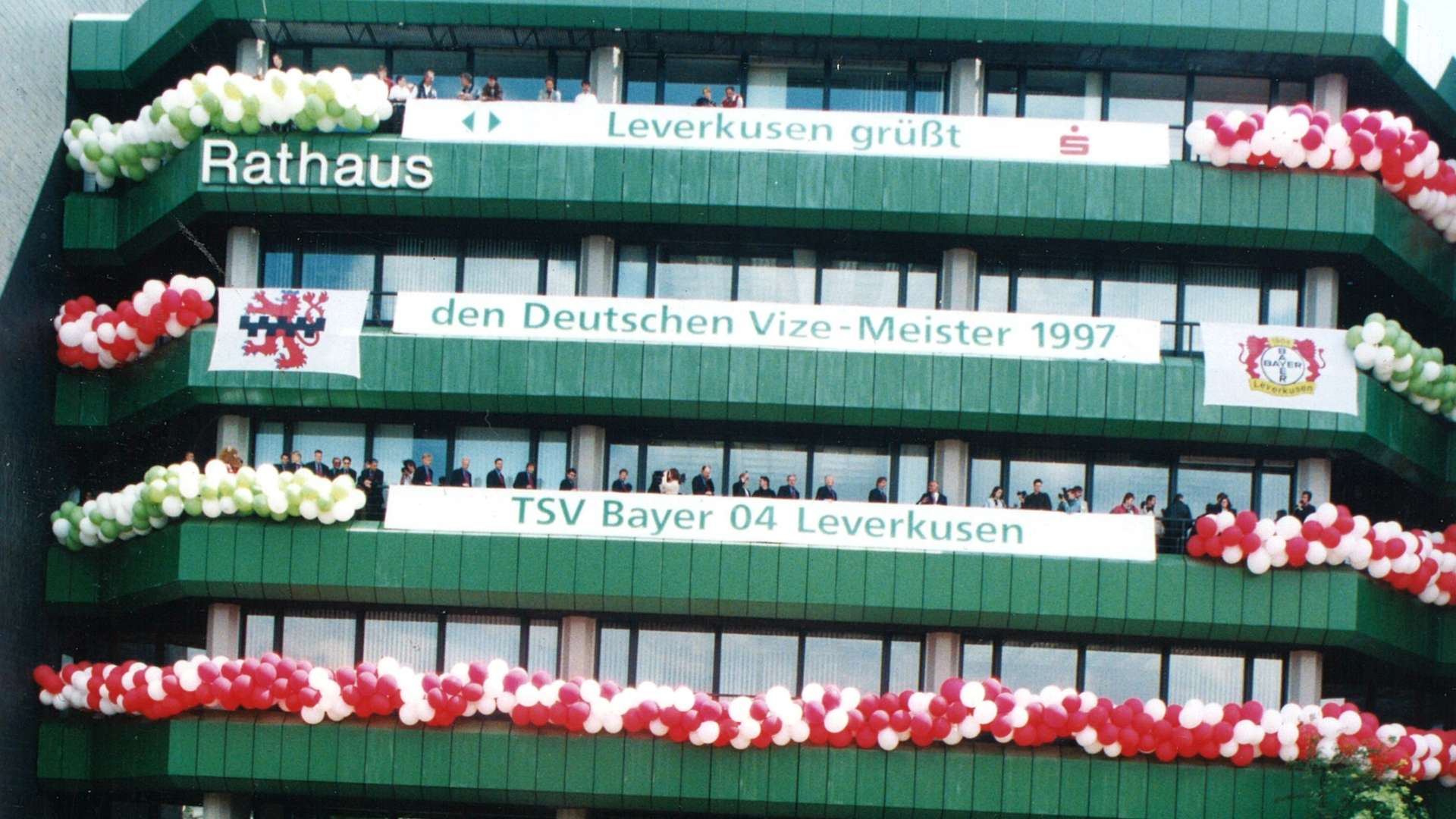
Following the party after the DFB Cup win in 1993, the team met up in a restaurant with a big terrace and a view of the town hall square. The fans were singing and dancing there and waiting for their heroes to come out so they could throw them into the town hall fountain one after the other when they left the restaurant. It was too dangerous for me. I grinned at the lads, took a run and I dived in myself. When we finished as league runners-up for the first time in 1997 we used the balcony of the town hall this time without the motorcade. We don't have a town hall balcony any more since it was demolished in 2007 but there are definitely enough alternative venues in Leverkusen where we can celebrate. The only thing missing is the title we've been waiting almost 30 years for.
Related News
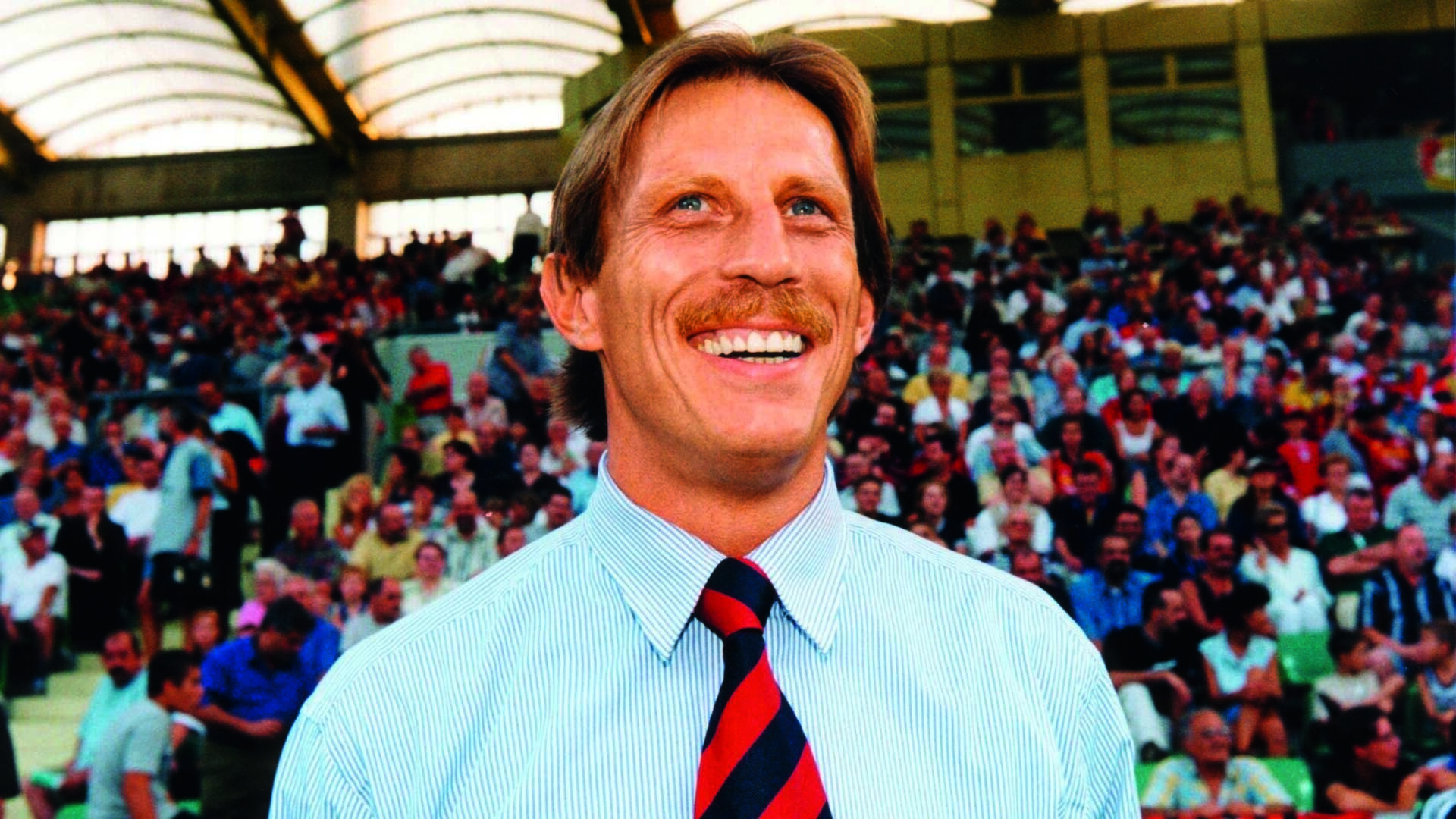
Legend: Christoph Daum - The man who taught us to want
Christoph Daum was born on 24 October 1953 in Zwickau. As a child, he moved to West Germany with his mother and grew up in Duisburg. He developed a great enthusiasm for football at an early age, even though it soon became clear that his future lay less on the pitch than on the sidelines. Even at a young age, his passion for analysing, explaining and improving things became apparent.
Show more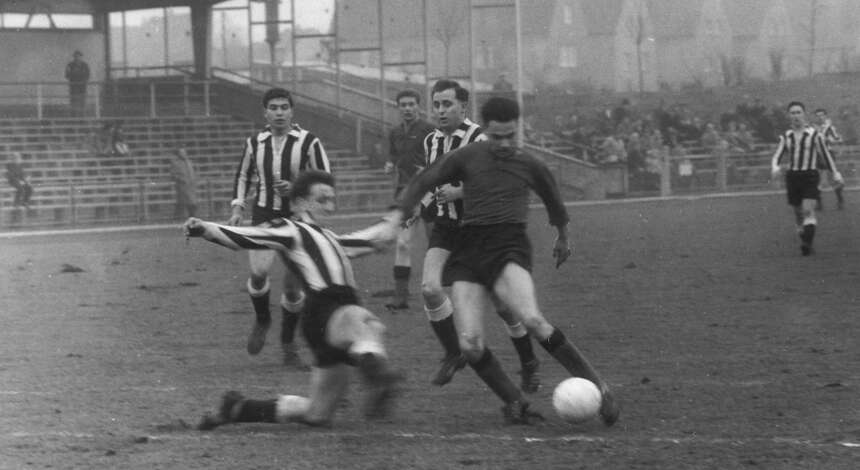
From the archives: 65 years ago - Another victory at last
When the Bayer 04 players celebrated Christmas in 1960, they spent the winter in second place in the Oberliga West 2 on 20 points - but already five points behind leaders Schwarz-Weiß Essen. However, coach Erich Garske's team are struggling to get back on track in the new year. A goalless draw against Bonner FV at home at the Ulrich Haberland Stadium was followed by a 2-1 away defeat in Erkenschwick. The following home game also yielded just one point. As a result, the team's promotion ambitions dwindled to a minimum, as the gap to the coveted spot has now grown to a challenging ten points.
Show more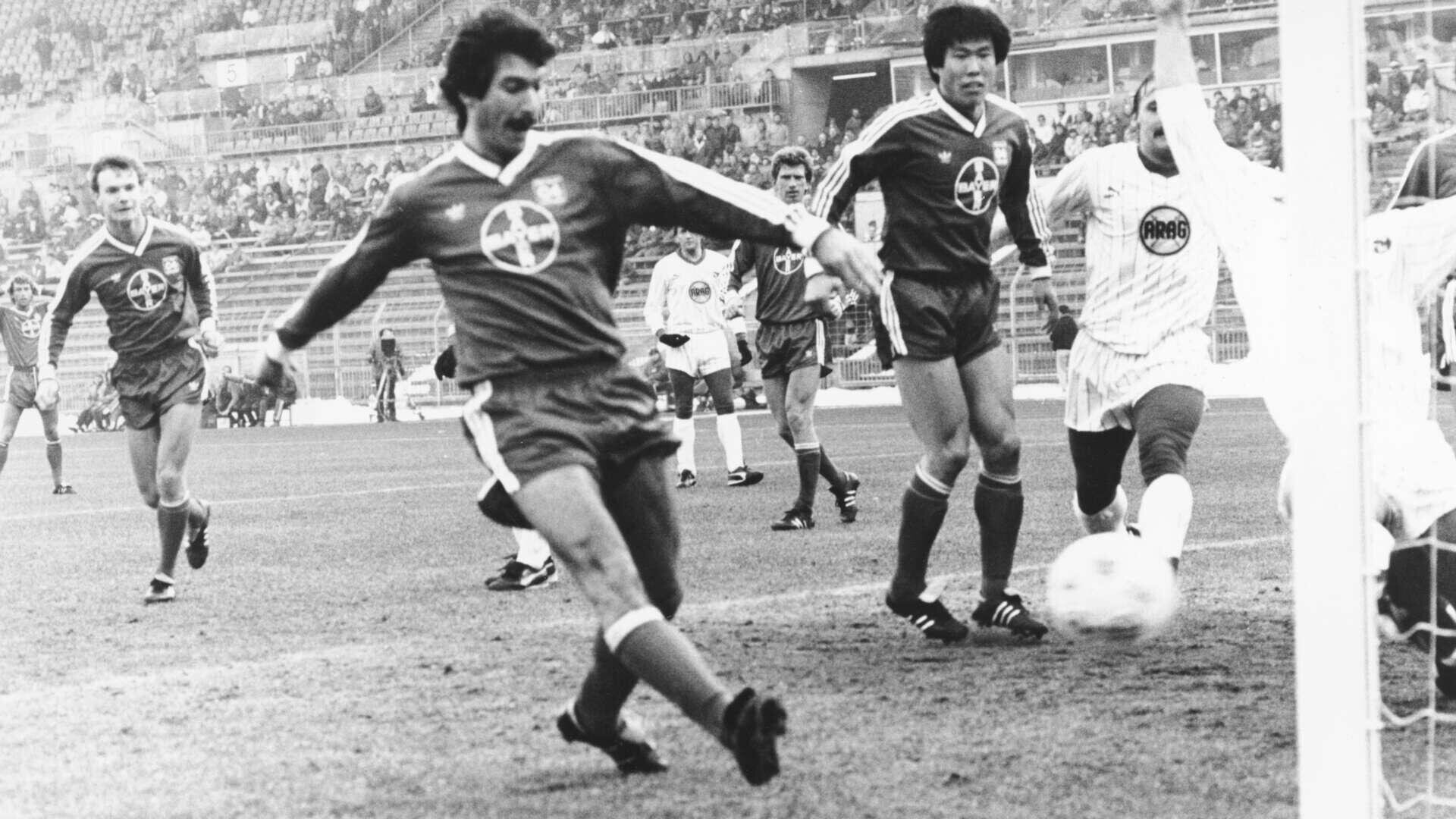
Goals of the month: From Waas to Tapsoba
In this video you can see impressive and important goals in Bayer 04 history from the month of February. It's not always about the beauty of the goals, but also a reminder of special games and players.
Show more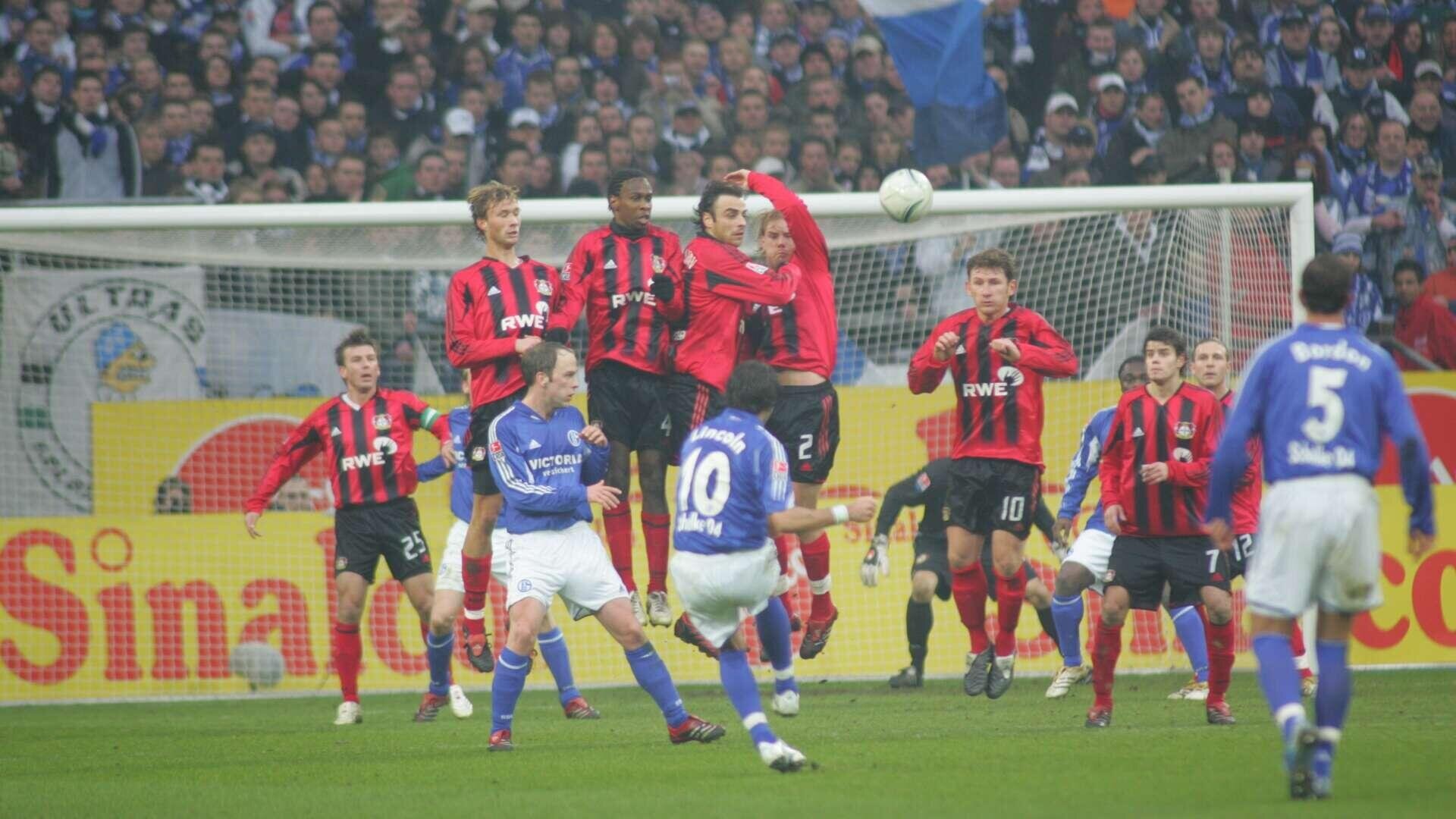
Match of the month: 20 years ago - A game of goals galore
It is 11 February 2006 and Schalke 04 and the Werkself kick off at 3.30 p.m. in a match that ends up being historic - at least from a Bayer 04 perspective.
Show more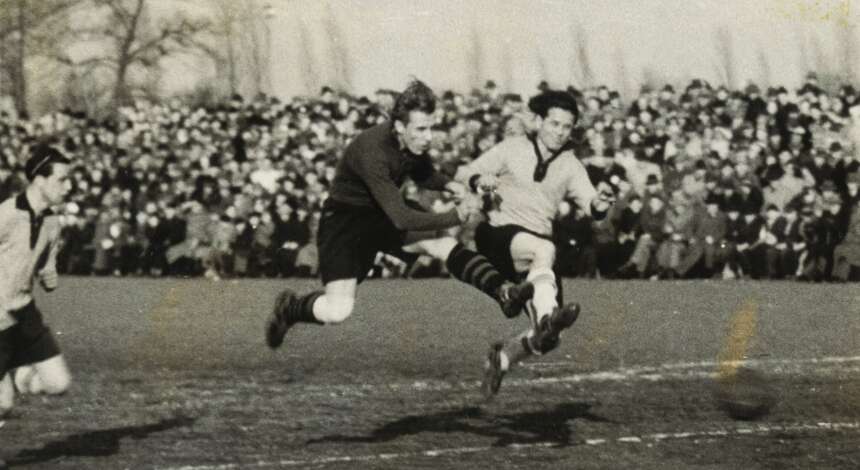
History: 75 years ago - The 1950/51 season (February)
As league leaders, the Werkself welcomed the relegation-threatened team from Rhenania Würselen. On 4 February 1951, 5,000 spectators line the touchlines despite the Sunday carnival parades. And they see a home team that is superior on the pitch. Without Theo Kirchberg, who was ill, and Emil Becks, who was suspended, the hosts attacked the opposing goal from the start. Battling against a strong wind in the first half, Bayer 04 created chance after chance, but were repeatedly thwarted by the Würselen goalkeeper. With the score at 0-0 at half-time, Karl Heinz Spikofski tried his luck on 55 minutes and hammered the ball into the opposition net from 20 metres out. Rhenania can no longer counterattack. The siege of the Würselen penalty area continued right to the end, but the game ended in a narrow 1-0 win.
Show more